How single mothers live in Georgia: four stories
The coronavirus pandemic and the isolation that has come with it have been particularly difficult for vulnerable social groups who are left on their own to face their problems.
In Georgia, a country which prides itself on the position a mother holds in society, single mothers often have little or no financial assistance.
JAMnews compiled stories of women raising children alone in dire circumstances.
Single parents in Georgia: statistics
There are officially 4,501 single parents in Georgia, 99% of them are mothers. However, this figure does not fully reflect reality. In fact, many more women are raising their children alone.
Almost every second marriage in Georgia ends in divorce. In 2019, the number of official marriages was 23,285, and the number of official divorces was 11,205.
Many fathers do not pay child support.
Single mothers in Georgia receive practically no assistance from the state.
- Bullying in Georgian schools: when being different is a risk
- Georgian fathers and paternity leave
- “I want to be friends with mommy” – UNICEF survey on parent-child relations in Georgia
Keti Herkeladze, 37 years old, Tbilisi
I feel very good and I am glad that I have a child.
It all happened unplanned. I learned about pregnancy after I broke up with my boyfriend.
When I found out, I decided to tell the child’s father everything and called him, but it turned out that he had already gotten married. I got angry and didn’t say anything to him.
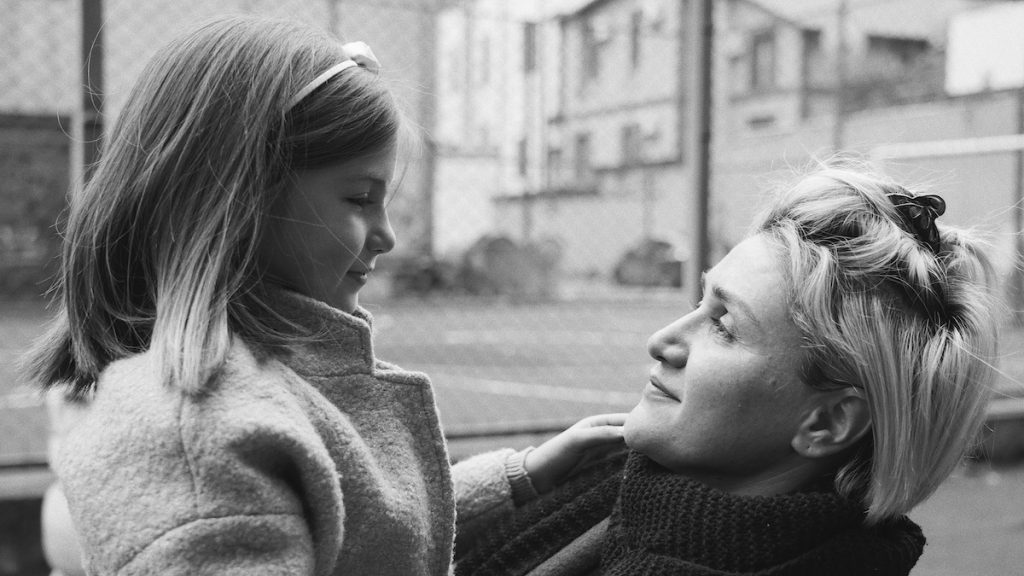
I will not hide and say that at first I was afraid of the reaction of my family members and was nervous. For me, the main thing was that the pregnancy would go smoothly, so I tried to avoid unnecessary stress and did not say anything at home. I wore loose clothing and said that I was just getting heavier.
I myself don’t know how I managed it, but they believed me. I only that told my mother about the pregnancy just six days before the birth.
Fortunately, the family’s reaction was exactly the opposite of what I expected. Everyone was saddened that they could not help me during pregnancy and share this happiness with me.
Leela was four years old when she first saw her father. She understands everything, knows that her father and I do not live together, that he has a different family, and she never complained about it. “If you get married, it will be good,” she told me once.
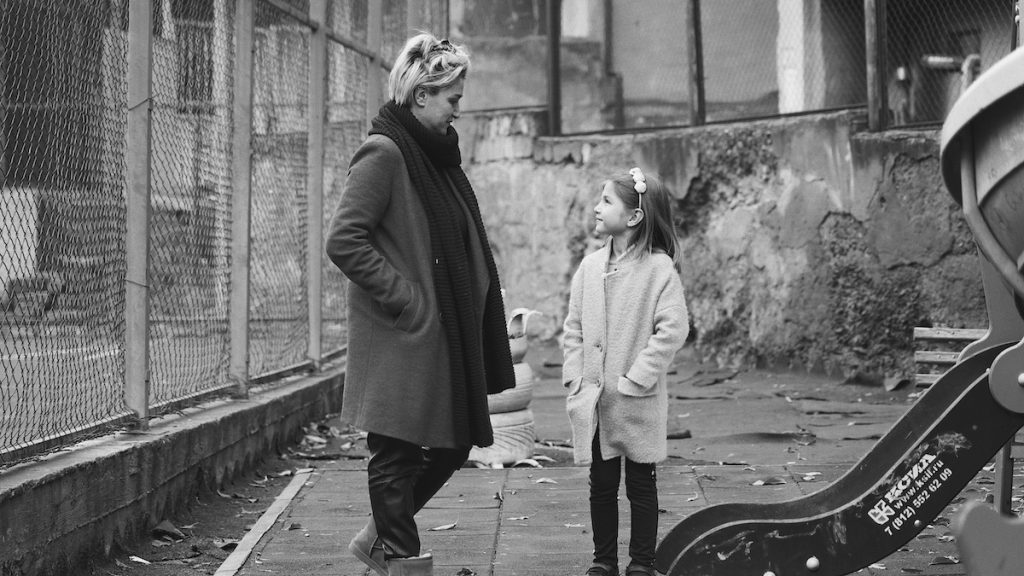
Now that she has grown up, she has already expressed a desire to meet her father. For the last two months they have been communicating by phone. Her father gave her a bicycle and she is very happy.
I would not have changed anything in my life since the moment I got Lile. Raising a child is a matter for two people, I was convinced of this, but I do not regret my decision for a minute.
Too many women do not do this because they are afraid of the stereotypes and responsibilities prevailing in society. They think they cannot raise a child alone. I want to tell them that for sure they can.
Who does the law consider a single mother in Georgia?
According to the Georgian legislation, the status of a single mother is granted to a woman who is not in a registered marriage and has a minor child (biological or adopted), in whose birth certificate the column for ‘father’ is empty.
In all other cases, the law does not recognise a woman as a single mother.
However, many mothers who are effectively raising their children alone do not officially register.
It does not matter to the law that the presence of the father on the birth certificate may be a mere formality and that a woman may indeed have been forced to raise a child alone.
In Georgia, where stereotypes about an unmarried woman and a child without a father still exist in society, women are often forced to officially indicate the names of their fathers in documents in order to protect their children from public censure, especially in the provinces.
“One man in the Kakheti region gave several children his last name to protect them from the stigma of society. Because of this, their mothers could not get single status, but they chose status to protect their children,” says Salome Mezurnishvili of the Human Rights Development Fund, an NGO that works on issues of single parents.
She recalls other cases that clearly show how far removed from reality are the criterion for assessing the status of a single mother.
“Widows are not considered single mothers either. Nor divorced mothers whose father does not pay child support. Nor women raising children alone because the father is in prison. In this case, the woman should be granted some kind of temporary status to receive assistance,” Mezurnishvili said.
She recalls a case when a woman was stripped of her single mother status:
“The details of the father were not recorded on the birth certificate because the father did not acknowledge the paternity. Then the mother began to fight and proved through examination that he was indeed the father. And what happened? The man still does not pay alimony, and the state has deprived her of the status of a single mother.”
Gvantsa, 24 years old, Zugdidi
I met the father of my child two years ago in Turkey. He is a Muslim, I am a Christian, so his mother didn’t like me from the beginning. I was asked to change my faith, but I refused. We were together for eight months, and then I left.
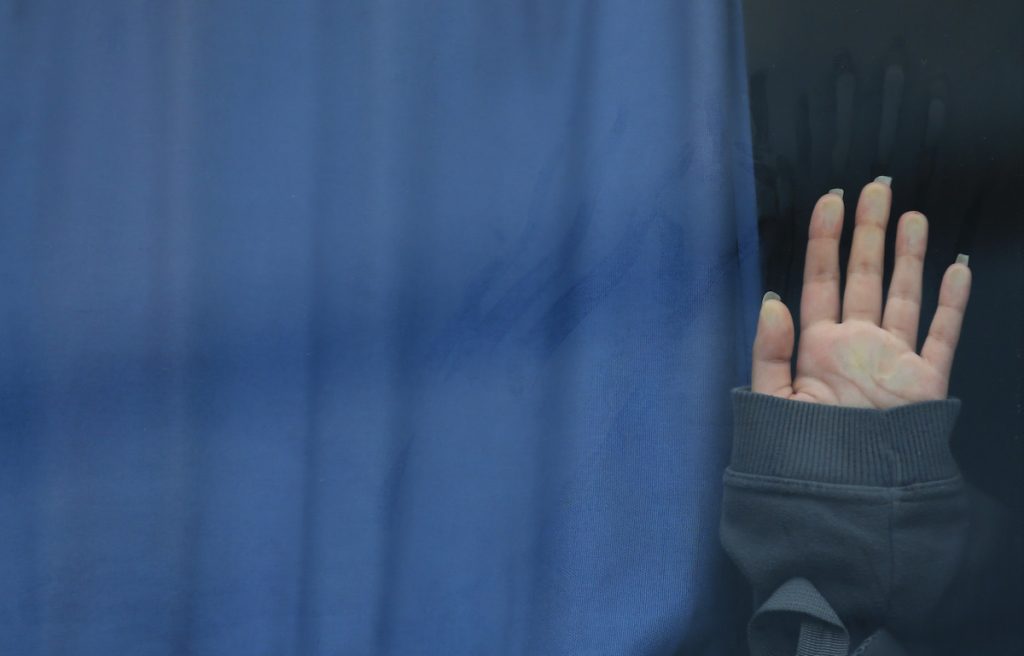
When I returned home, I found out that I was pregnant. I confess that there were moments when I thought whether to give birth or not. But even thinking about it is a sin. I could not.
My family was very supportive. The father told me that he himself would help me and would raise my child. At such moments, family support is probably the most important.
There were people who advised me not to give birth. You know what stereotypes exist in Georgia. But I made a decision. And when your father and mother are next to you, it doesn’t matter what others say. Now, as far as I know, there are various gossips about me, but other people’s opinions don’t bother me.
Demeter now has my surname. I’m going to tell him everything as it was. I believe that it is necessary from the very beginning to teach the child to the truth.
It’s actually very difficult for me, but nothing is impossible. If it weren’t for the financial situation, nothing would bother me at all.
I used to work in a store, but since the pandemic began, I have been sitting at home. My mother has had three strokes, and now only my father works in the family.
My father is a 2008 war veteran and receives a veteran’s pension of 22 lari [about $6.7]. In 2018, he was fired from his job, now he works in the workshop, but sometimes days go by so that he can not bring anything home at all.
Rent is overdue, and we do not know when we will be evicted.
The child receives social assistance in the amount of 50 lari [about $15] from the local municipality, I get nothing. I guess I’m too rich and I don’t need it. The child’s father also sometimes sends me money.
It’s sad that I am no exception. This is how all of Georgia lives, it is very difficult for everyone.
How do single mothers get help?
Just five years ago, Georgian legislation did not recognize single mothers at all.
A decree defining this status came into force in 2015 as a result of the active work of non-governmental organisations.
The National Anti-Violence Network was involved in this process. Its main task was to provide at least minimal financial assistance to single single mothers, says the organization’s lawyer Manana Purtskhvanidze.
“At the initial stage, we fought to get them at least 50 lari [about $15], but did not reach the goal. We only managed to get the status determination. In addition, the criteria on the basis of which parents receive status are very limited and there is no question of their expansion. Our state failed to resolve this issue,” says Purtskhvanadze.
Despite the fact that few mothers meet the criteria for obtaining the status, the state practically does not provide them with material assistance.
In Georgia, women with this status have only one advantage – they are completely exempt from income tax. But only if their annual income does not exceed three thousand lari [about $900], which is 250 lari per month.
At the same time, for example, the subsistence minimum for a family of two in Georgia is 266 lari.
Single mothers often seek help from local authorities.
However, the law does not oblige municipalities to provide assistance, it only depends on their goodwill. Some municipalities, for example, help single mothers pay utility bills, but some do not.
In this regard, Tbilisi is in the worst position, where the largest single mothers live.
According to Salome Mezurnishvili, the only thing that her organization was able to achieve in the city after a big struggle is that since 2019, children of single parents are registered out of turn in state kindergartens.
“First of all, it is necessary to expand the criteria of status, and then, depending on the need, individually determine what kind of assistance the mother will receive. For example, if a city transportation voucher was a great help for a single parent living in the city, it would be useless for those living in the countryside. Therefore, the needs of single parents are a complex issue that requires serious research, ”Mezurnishvili said.
Another benefit that the state offers to single mothers is to take their status into account when assessing the socio-economic status of the family.
That is, to put it simply, a single mother is more likely to receive socially unprotected status and receive assistance based on this status. The socially disadvantaged benefit in Georgia today ranges from 30 to 60 lari [about $ 9-18] per family member.
Support for single mothers has not changed even in the face of the pandemic. When a country is practically closed, and tens or even hundreds of thousands of people have lost their jobs, vulnerable groups are particularly affected.
Having learned that the government was not going to help single mothers during the pandemic, Salome Mezurnishvili herself began to raise funds to help such families with food.
As for alimony, the number of court cases testifies to the fact that this is a problematic issue. According to the National Bureau of Enforcement, 2,363 cases of alimony collection were received there in 2015-2016.
Some fathers cannot pay alimony due to lack of income, while others evade payment in various ways – hiding their income, registering property in the name of their parents, etc.
Maka Keidia, 38 years old, Tbilisi
We were together for five years, and then I got pregnant. We both decided we wanted a baby and we had little Mariam.
Five months later, he went abroad. We had a plan: first he would go himself, get on his feet there, and then he would pick us up. We planned all this for the sake of our better future. For several months we had a normal online relationship, he talked to me and the child.
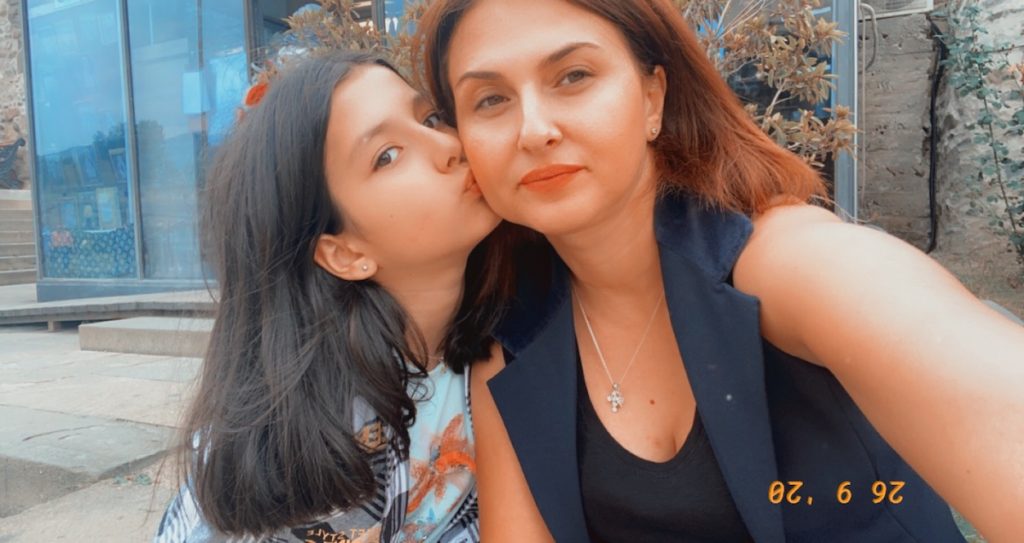
However, one day he suddenly disappeared. I had no idea where he was or what he was doing. Three months later, I met him by chance in Tbilisi. He didn’t even ask anything about the baby.
Then I realized that nothing else binds me to him, and I was left alone with a small child in my arms.
Mariam was then two years old. She is now ten years old. For eight years, the father never once asked how his daughter was doing, what she eats, what she dresses, how she studies.
In 2017, I filed an alimony claim in court. Of course, he appealed and tried to hide everything that was issued in his name. He appealed the lawsuit in all three instances, including the Supreme Court, where the judge asked me directly: why do you want to force a person to do what he does not want? Yes, the judge told me such a thing. And he does not live in poverty at all, he lives very well.
In the end, I won, and the court fixed a certain amount that he had to pay every month. This amount is probably not even one percent of his income.
He pays alimony, but I often have to remind him of this. He does not see the child, does not even ask about her.
The hardest part is being alone in everything. When making decisions, facing problems, even in joy, you are alone.
The child has the father’s surname, so the status of a single mother was not granted to me. Consequently, I am not entitled to help or benefits. In general, the state did not help me in any way.
Fortunately, my parents supported me and did their best to ensure that Mariam and I did not feel abandoned.
I have long been accustomed to raising a child alone and relying only on myself. When Mariam grows up, she will decide for herself what kind of relationship she wants with her father. Now she seems to feel that I do not like to talk about this topic and does not ask many questions.
Marie Jakeli, 36 years old, Chakvi
My future husband, an Arab from Syria, was introduced to me by a neighbor. We immediately liked each other. We got married in May 2005, about a month after we met.
In the beginning, everything was good with us. Then, when my first child was born, everything changed. My husband began to mistreat me, beat me and insulted me.
At first I stayed with him because of my first child, then my second was born, then the third, and finally, in the 13th year of our marriage, our fifth child was born.
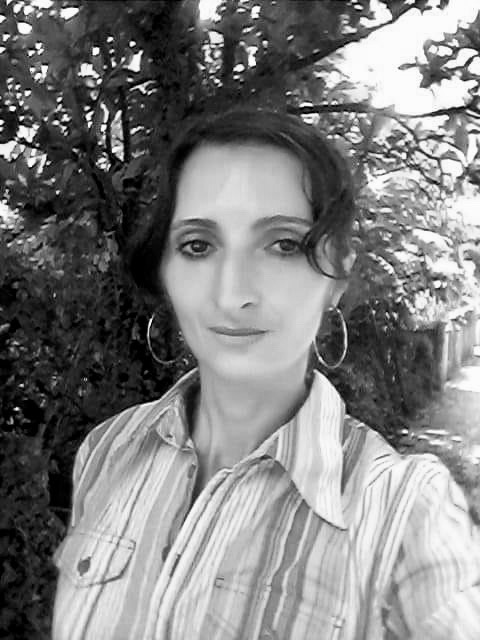
When he was in a bad mood, he took out his anger on me. I hoped that he would improve, endured for the sake of children who need a father.
When my third child was born, we moved to Damascus. He treated me badly there too, nothing has changed. He drank and beat me.
We lived in Syria for four years. My fourth child was born there. When unrest began there, we returned to Georgia. At first we lived in a neighbor’s apartment for two months, then we moved to my brother’s apartment for two years.
Then they started working and bought a house. My fifth was born here.
For 13 years, I waited every day for him to improve, but finally I realized that there was no point in waiting any longer. On July 29, I took the children and left.
I now live in my brother’s apartment. My husband does not pay alimony – he says that he is not obliged to give money to the children. Once every three months, it happens that he gives money for food and takes his eldest son with him. It’s all.
I could not go to court with a claim – I worked and there was no time, but now you won’t go anywhere. We sit at home locked up.
I used to go to Batumi and clean houses. In the summer I worked in a bar on the coast and took the children with me to work. Now what should I do? I don’t work anywhere and I sit at home like everyone else.
I receive an allowance, my mother and brother help with money as much as possible. Neighbors and church support. Thank God we always have food, my children never go hungry.
My phone is not good enough for kids to learn online. At school we were promised a computer, but they haven’t given us one yet. I can’t buy a new phone, the allowance won’t be enough for that. I don’t even have a washing machine, what kind of phone are we talking about?
It’s difficult without a husband, especially when you can’t work. At first I was very upset, I was depressed. But then I got used to it.
It’s better than living in fear. The children also watched how my husband treated me. I prefer to support my family alone and calmly raise my children.
With the support of the Russian Language News Exchange


















